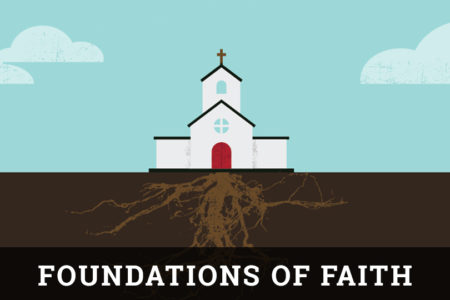Israel’s Darkest Day
Israel’s era of innocence died with the assassination of Prime Minister Yitzhak Rabin. Theirs was not an innocence bred by naiveté. At its core it was tough—much like the exterior of the Sabra cactus after which home-born Israelis are named. But, as with the Sabra growing in profusion in Israel, within was a softness that was pleasant to the taste for those who cared enough to peel away the prickly outer shell.
That innocence is gone now, swept away by an assassin’s bullet that will serve Israel’s enemies much better than it will serve the cause of peace in the Middle East.
What hit the nation with the psychological force of the dumb-dumb bullets that took the life of the prime minister was the fact that the illusion of family was shattered. The decimated remnant of Jewry that took refuge in Israel following the Holocaust always had an unprecedented national sense of family. It was felt deeply during their wars for survival. For every triumph, the family rejoiced. With the death of just one of their sons, the family grieved. No issue faced, internally or internationally, seemed to shake that feeling. Indeed, for this reason Mr. Rabin had refused the flack jacket recommended by his security service. He did so because he found it incomprehensible that a member of the family—an Israeli—would raise a hand against him. He was wrong, and so was most of the nation.
So traumatic were the divisions over the issues being addressed in the peace process that some began to portray the prime minister in images that were reprehensible to Jewish people—most notably, as a Nazi. There were those, principally in hard-line ultra-religious groups, who went so far as to call for his execution. In fact, the rhetoric became so heated that a few lost touch with the ability to separate issues and the individuals articulating differing views.
After all, Yitzhak Rabin was a man who had served the people of Israel with distinction since before the state was born. He was a Sabra, the first Israeli-born prime minister in the history of the nation. For more than 40 years, he fought against all of Israel’s Islamic foes and led the country to its greatest military victories in the 1967 Six–Day War. Ironically, he was killed because he was negotiating over lands he helped win for Israel in 1967. Assassination was, therefore, not only a crime against a true patriot, it was an insult to the nation he served.
This is not to say that there were not legitimate causes for concern about the direction being taken in the peace process. Benjamin Netanyahu and other leaders of the opposition need not apologize, or be intimidated by vilification from irresponsible elements in the media, for making a strong and sometimes emotional case against what they viewed as the selling of the nation’s territorial birthright. Such opposition is the stuff of which democracies are made, particularly in a nation confronted by the survival imperative faced in Israel with every new day.
While the nation is held in the grip of grief and soul-searching that will obviously go on for a time, there is no way of predicting what impact the assassination will have on the future direction of the peace process. One would hope that there will be a reality-based outcome that will bring a complete reassessment of how far Israel should go in placating entrenched enemies and submitting to international pressure to conform to UN directives. What is at stake is far too important to be driven by emotional reactions, even wrenching emotions as deeply felt as those following the assassination of a prime minister who was also a national hero.
With the death of Yitzhak Rabin, we have been exposed once again to the dark side of the world we find ourselves in today. It is a world that has lost touch with civility and respect for those who hold opposing views. Unfortunately, it is a time when reason is giving way to radicalism, and we all will, if it continues, pay an exorbitant price for collectively allowing it to happen.
I suppose one can rightly say that what we have seen is a sign of the times—the end times—and God alone has the solution to our most persistent dilemmas.








Can you advise please when the issues for the 1990’s will be available as pdf downloads?
I really appreciate access to these back issues.
Thanks
Unfortunately, we will not have PDF versions available for issues before the year 2000, as these were not originally created in digital format.